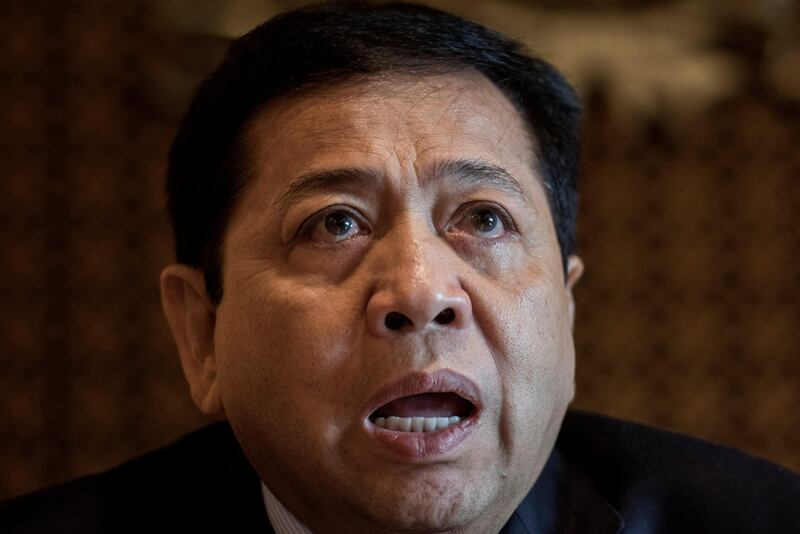The speaker of Indonesia's parliament on Tuesday denied allegations that he helped cause big losses to the state in connection with the issuance of electronic national identity cards.
Setya Novanto, chairman of Golkar - Indonesia's second-biggest political party - denied allegations of corruption after media reports named him as a suspect in the alleged state loss of at least 2.3 trillion rupiah (Dh635m) from the identity-card programme.
Late on Monday, chairman of the independent Corruption Eradication Commission (KPK) Agus Rahardjo said a legislator with the initials "SN" was suspected to have abused his authority to benefit himself or others while the electronic identity card, known as e-KTP, was put in place in 2011 and 2012.
The KPK always refers to suspects by their initials and never confirms their full names. After Mr Rahardjo's statement, many Indonesian media named Mr Novanto as the suspect the agency is investigating.
On Tuesday, Mr Novanto said he would obey the legal process, but said he was shocked by the allegations and denied any wrongdoing.
"Whatever I'm accused of is not true," he said. "If they say that I received funds, I've never done that. The sum of that money is incredibly huge. How was it transferred, how was it received?"
The corruption commission has been investigating allegations that sums ranging from $5,000 to $5.5 million - money generated by marking up the costs of the e-KTP procurement - were divided up in a room in parliament.
In March, two public servants on trial for corruption linked to the case named at least 37 people, including Mr Novanto, who they said had benefited.
The commission's large-scale investigation, which also implicates members of President Joko Widodo's ruling party, PDI-P, shows the independence of the anti-graft agency, political analysts say.
Despite repeated efforts by politicians to undermine it, the KPK has remained independent and highly popular with the Indonesian public.
It is also seen as crucial for Mr Widodo's drive to battle graft in the country that ranked 90th out of 176 in Transparency International's Corruption Perceptions index last year.
The decision to designate Mr Novanto, whose Golkar party is part of Mr Widodo's coalition, as a suspect is "a very positive sign", said Keith Loveard, a Jakarta-based analyst at Concord Consulting.
"This most certainly demonstrates how tough the KPK is," Mr Loveard said, adding that Mr Widodo is unlikely to get in the way of the investigation in the ID programme case.
"While all the parties are virtually implicated, including the PDI-P, public support for the KPK remains extremely high. So for him to attempt to slow the process or to create obstacles would be very damaging to his popularity," Mr Loveard added.





